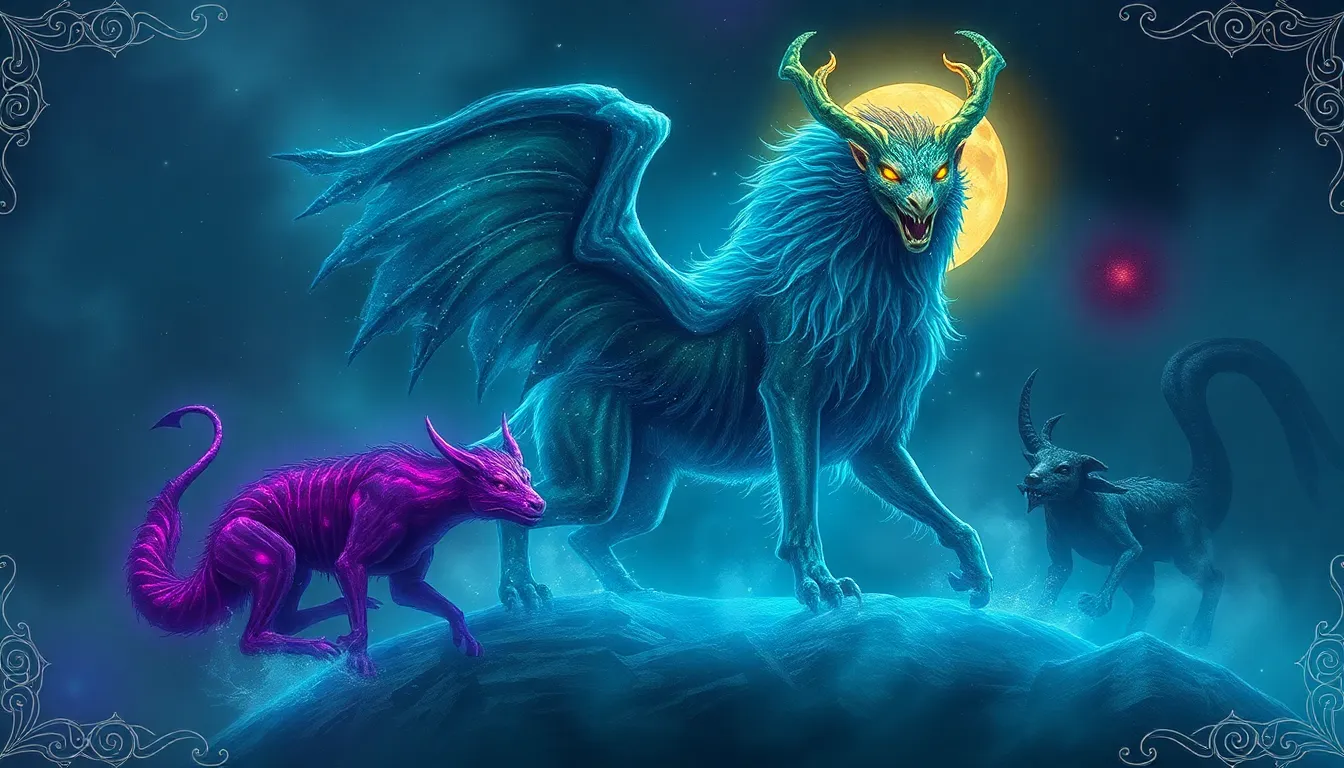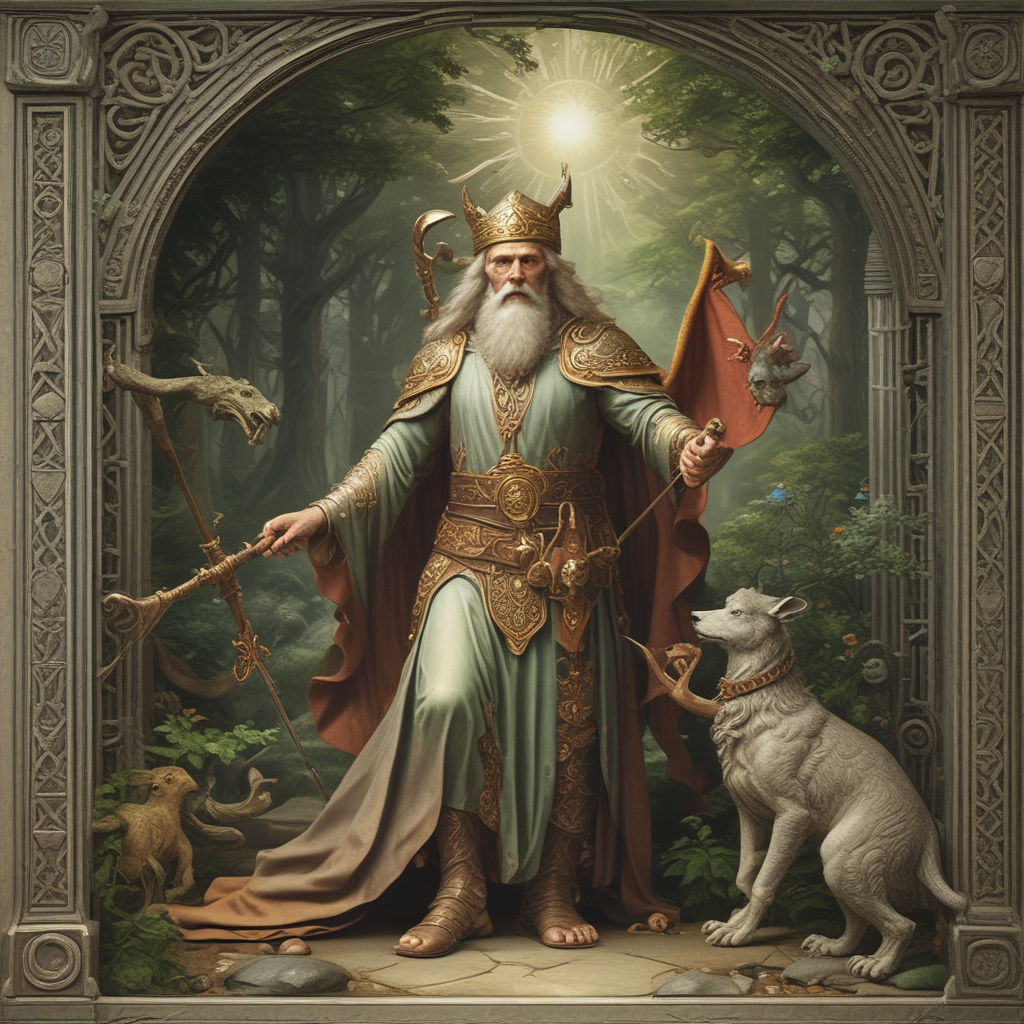The Flood Myths You’ve Never Heard Of: Hidden Gems from World Mythology
Introduction: The Universality of Flood Myths
Throughout human history, flood myths have emerged across diverse cultures, serving as powerful narratives that reflect the fragility of human existence in the face of nature’s fury. These stories often illustrate themes of destruction, renewal, and the relationship between humanity and the divine. While many are familiar with the well-known flood narratives, such as the story of Noah’s Ark or the Epic of Gilgamesh, there exists a treasure trove of lesser-known flood myths that offer unique insights into the values and beliefs of various cultures. This article delves into some of these hidden gems, revealing the rich tapestry of flood mythology worldwide.
The Role of Nature in Mythology
Natural disasters, particularly floods, have significantly shaped cultural narratives throughout history. The aftermath of floods often leaves communities grappling with loss and transformation, prompting them to create stories that help explain their experiences and fears. Flood myths often serve as cautionary tales or moral lessons, emphasizing humanity’s vulnerability and the need for respect towards nature.
The symbolic meaning of floods in human history can be multifaceted:
- Destruction: Floods can symbolize chaos and the end of an era.
- Renewal: They often represent the cleansing of the old, making way for new beginnings.
- Divine Judgment: Many myths portray floods as acts of divine retribution against human wrongdoing.
The Mesopotamian Flood: Beyond Gilgamesh
While the Epic of Gilgamesh is perhaps the most famous Mesopotamian flood narrative, it is not the only one. The myth of Atrahasis, for instance, offers a different perspective on the flood story. In Atrahasis, the gods create humanity but soon become overwhelmed by their noise and chaos, leading them to decide to send a flood to wipe out humankind.
This narrative raises intriguing questions about the relationship between the divine and humanity, highlighting themes of creation, destruction, and the balance between the two. It suggests that humanity’s existence is not only a gift but also a responsibility, with implications for how we live in harmony with the natural world.
The Flood Myth of the Tupi-Guarani People
The Tupi-Guarani people of South America possess a rich mythology that includes a fascinating flood story. In their narrative, the world was once inhabited by giants who caused chaos and destruction. The creator god, Tupa, decided to send a flood to cleanse the earth of these giants and started anew.
This flood myth is significant in the Tupi-Guarani worldview, as it emphasizes the importance of balance and harmony in nature. The aftermath of the flood saw the emergence of a new world, where humans could thrive. This reflects their deep connection to the environment and the belief that nature must be respected and preserved.
The African Flood Myths: A Tapestry of Stories
Africa is home to a rich array of flood myths that vary widely among different cultures. For instance, the Dogon people of Mali have a flood story that involves the god Amma, who created the world and then sent a flood to cleanse it of corruption.
Similarly, the Bantu people have their own flood tales, often involving a great hero who survives a deluge and repopulates the earth. These stories not only serve to explain natural disasters but also reflect the unique environmental conditions of the regions where they originated, illustrating the interconnection between culture and environment.
The Flood Legend of the Hopi Tribe
The Hopi tribe of North America has a rich creation story that includes a significant flood narrative. According to Hopi tradition, the first world was destroyed by a flood as a result of the inhabitants’ failure to live in harmony with nature. The creator deity, Taiowa, then sent a flood to cleanse the earth.
This narrative resonates with modern environmental concerns, as it emphasizes the consequences of human actions on the earth. The Hopi people view themselves as caretakers of the land, and their myths reflect a deep understanding of sustainability and respect for nature.
Flood Myths in South American Indigenous Cultures
In South America, indigenous cultures such as the Inca and the Mapuche also have rich flood myths. The Inca myth tells of a great flood that was sent by the sun god Inti to cleanse the earth of sin. Survivors of the flood became the ancestors of the Inca people, reinforcing themes of rebirth and renewal.
The Mapuche people share stories of a flood that destroyed the world, but from the waters emerged a new creation, symbolizing hope and regeneration. These narratives highlight the themes of renewal and destruction, showcasing how floods can serve as a catalyst for new beginnings.
The Role of Animals in Flood Myths
Animals often play a significant role in flood myths, symbolizing various aspects of nature and humanity’s relationship with it. In many cultures, animals are seen as messengers or helpers during floods.
- Doves and Ravens: Commonly sent to find land after a flood, symbolizing hope.
- Fish: Representing survival and adaptation to changing environments.
- Beasts of burden: Often depicted as companions to humanity in the aftermath of destruction.
These animal figures serve to bridge the gap between the human and the natural world, emphasizing the interconnectedness of all life.
Modern Interpretations and Cultural Significance
Today, many contemporary societies reinterpret ancient flood myths in light of current environmental challenges. These myths resonate with modern discussions on climate change, natural disasters, and humanity’s responsibility towards the earth.
Flood myths remind us of the lessons learned from past experiences and the importance of respecting nature’s power. They serve as cultural touchstones that emphasize the need for environmental stewardship in our increasingly fragile world.
Conclusion: The Legacy of Hidden Flood Myths
The exploration of lesser-known flood myths reveals the richness and diversity of global mythology. These narratives, often overlooked, offer profound insights into the human experience and our relationship with nature. Preserving these stories is vital, not only for cultural heritage but also for understanding the interconnectedness of humanity and the environment.
As we navigate the challenges of modern life, let us take the time to explore and appreciate the hidden gems of mythology that continue to inspire and teach us valuable lessons about resilience, renewal, and respect for the natural world.




